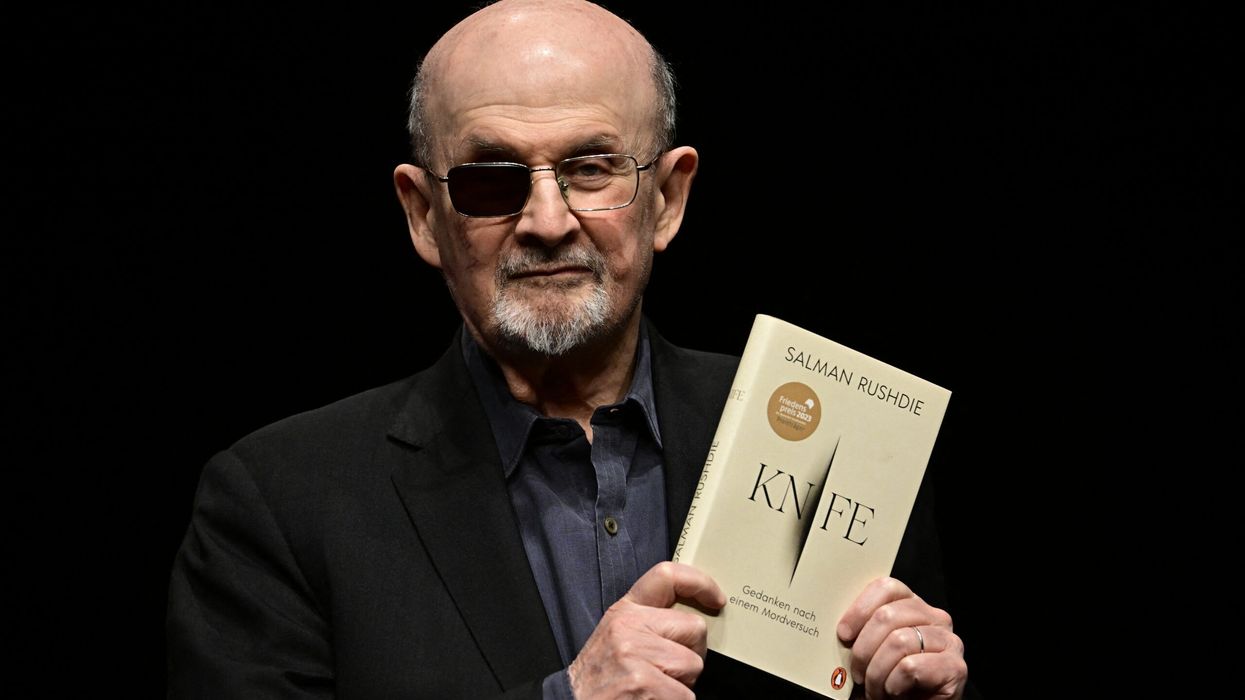BOOKER Prize-winning author Salman Rushdie may become the first writer to win a major literary award in both fiction and non-fiction. His memoir about surviving an attempted assassination on stage was included in the longlist for the GBP 50,000 Baillie Gifford Prize for Non-Fiction in London on Thursday.
‘Knife: Meditations After an Attempted Murder’ by the Indian-American-British author is one of twelve books on the longlist for this top non-fiction award, which is open to authors of any nationality. The judges described Rushdie’s memoir as an “intimate and personal account of a world-historical event” as he recovers from the serious stabbing.
“Reaching a longlist in a year when so many wonderful non-fiction books have been published was never going to be easy, but I could not be happier with the result,” said Isabel Hilton, chair of judges. Hilton is a journalist and broadcaster based in London.
“It is, of course, a list of remarkable and outstanding books, and they shed new and brilliant light on our contemporary world through explorations of history, of memory, of science and nature. Collectively this wonderful reflection of creativity, of critical thinking and great writing left us in no doubt that the non-fiction world is overflowing with energy and talent,” she added.
Australian author Richard Flanagan, another Booker Prize-winning novelist, is also longlisted for the non-fiction prize with his book ‘Question 7’, which discusses his own near-death experience.
Other longlisted authors include Gary J Bass for ‘Judgement at Tokyo: World War II on Trial and the Making of Modern Asia’; Jonathan Blitzer for ‘Everyone Who Is Gone Is Here: The United States, Central America, and the Making of a Crisis’; Annie Jacobsen for ‘Nuclear War: A Scenario’; and Adam Shatz for ‘The Rebel's Clinic: The Revolutionary Lives of Frantz Fanon’. Vietnamese-American Viet Thanh Nguyen is longlisted for ‘A Man of Two Faces: A Memoir, A History, A Memorial’, and Belgian author David Van Reybrouck for ‘Revolusi: Indonesia and the Birth of the Modern World’.
British authors Rachel Clarke for ‘The Story of a Heart’; Rachel Cockerell for ‘Melting Point: Family, Memory and the Search for a Promised Land’; Sue Prideaux for ‘Wild Thing: A Life of Paul Gauguin’; and Helen Scales for ‘What the Wild Sea Can Be: The Future of the World's Ocean’ are also on the longlist.
The 2024 judging panel includes Chitra Ramaswamy, Heather Brooke, Alison Flood, Peter Hoskin, and Tomiwa Owolade. They selected the books from 349 published between November last year and October this year, noting that the longlisted authors cover topics that impact “our past, present and future”.
The six shortlisted books for the Baillie Gifford Prize for Non-Fiction, each receiving GBP 5,000, will be announced on October 10 at the Cheltenham Literature Festival. The winner, who will receive GBP 50,000, will be announced at an awards ceremony on November 19.
(With inputs from PTI)




